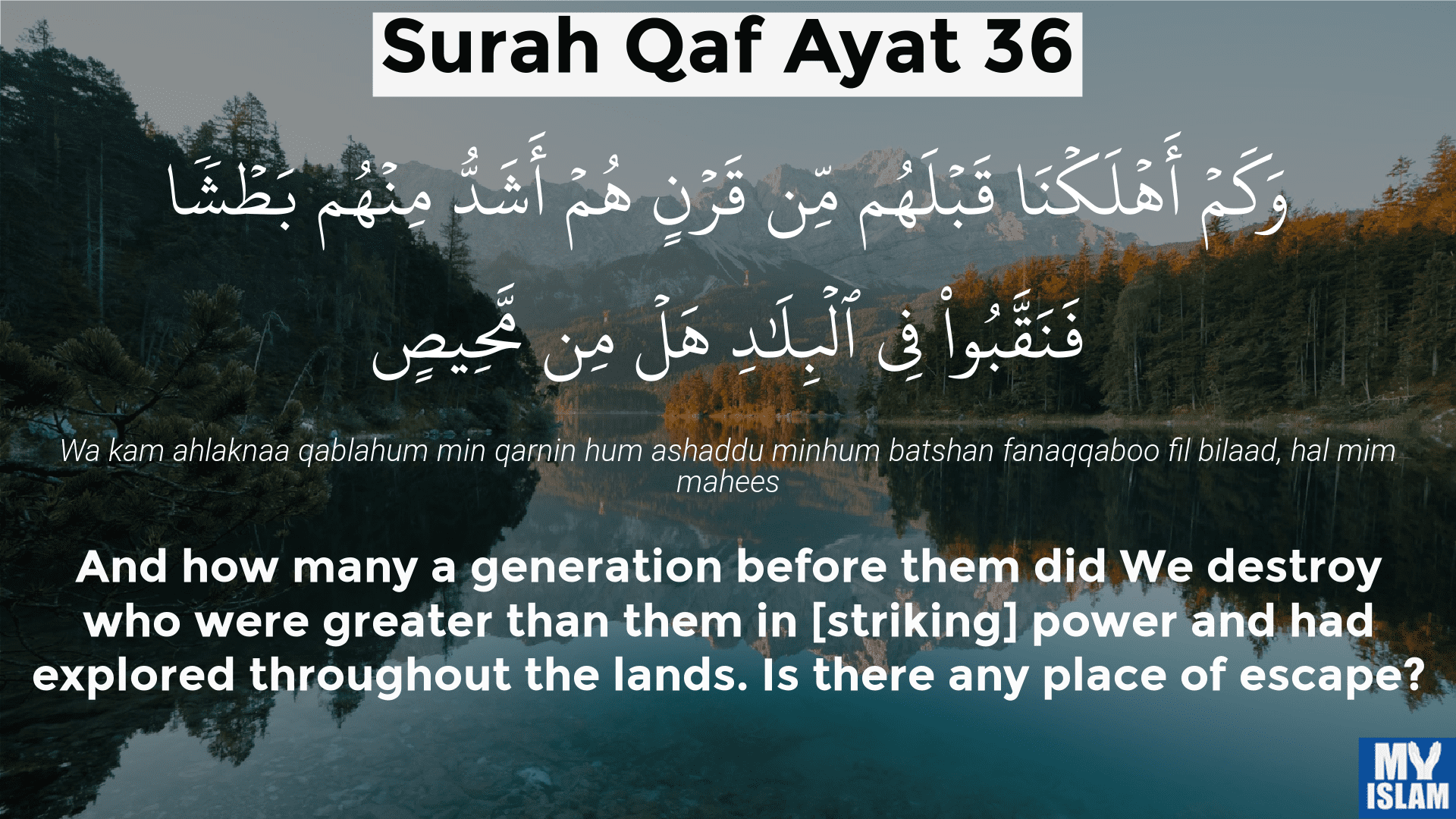Surah Qaf Ayat 33 in Arabic Text
English Translation
Here you can read various translations of verse 33
Who feared the Most Merciful unseen and came with a heart returning [in repentance].
“Who feared (Allah) Most Gracious Unseen, and brought a heart turned in devotion (to Him):
to everyone who feared the Merciful One though He is beyond the reach of perception, to everyone who has come with a heart ever wont to turn (to Him).
“Who feared the Most Beneficent (Allah) in the Ghaib (unseen): (i.e. in this worldly life before seeing and meeting Him), and brought a heart turned in repentance (to Him – and absolutely free from each and every kind of polytheism),
Who feareth the Beneficent in secret and cometh with a contrite heart.
Who is apprehensive of The All-Merciful in the Unseen and comes with a penitent heart.
who held the Most Gracious in awe, though He is unseen, who comes before Him with a heart turned to Him in devotion-
جو رحمٰن کا غائبانہ خوف رکھتا ہو اور توجہ واﻻ دل ﻻیا ہو
Quran 50 Verse 33 Explanation
For those looking for commentary to help with the understanding of Surah Qaf ayat 33, we’ve provided two Tafseer works below. The first is the tafseer of Abul Ala Maududi, the second is of Ibn Kathir.
Ala-Maududi
(50:33) to everyone who feared the Merciful One though He is beyond the reach of perception,[42] to everyone who has come with a heart ever wont to turn (to Him).[43]
42. That is, although he could not see the Merciful God and could not perceive Him by his senses in any way, yet he feared His disobedience. His heart was more dominated by the fear of the unseen Merciful God than the fear of other perceptible powers and visible and mighty beings, and in spite of knowing that He is All-Merciful, he did not become a sinner, trusting His Mercy, but feared His displeasure in whatever he said and did. Thus, this verse points to two of the believer’s important and basic characteristics: First, that he fears God although he cannot see and perceive Him; second, that he does not persist in sin in spite of his full awareness of God’s quality of mercy. These very two characteristics make him worthy of honor in the sight of Allah. Besides, there is another subtle point also in it, which Imam Razi has pointed out. In Arabic, there are two words for fear, khauf and khashiyyat, which have a difference in their shade of meaning. The word khauf is generally used for the fear that a man feels in his heart on account of his sense of weakness as against someone’s superior power and strength, and the word khashiyyat is used for the dread and awe with which a man is filled and inspired because of somebody’s glory and grandeur and greatness. Here, the word khashiyyat has been used instead of khauf, which is meant to point out that a believer does not fear Allah only on account of the fear of His punishment, but it is the sense of Allah’s glory and greatness that keeps him awe inspired at all times.
43. The word munib in the original is derived from inabat, which means to turn to one direction and to turn to the same again and again, just like the needle of the compass that points to the magnetic north persistently, however one may try to turn it away from that direction. Therefore, qalb-i-munib would mean such a heart as has turned away from every other direction and turned towards One Allah alone and then kept on turning towards Him again and again throughout life. The same sense has been conveyed by the devoted heart. This shows that in the sight of Allah the man of real worth is he who remains attached and devoted to Allah alone not merely verbally but also truly and sincerely.
Ibn-Kathir
The tafsir of Surah Qaf verse 33 by Ibn Kathir is unavailable here.
Please refer to Surah Qaf ayat 30 which provides the complete commentary from verse 30 through 35.
Quick navigation links






